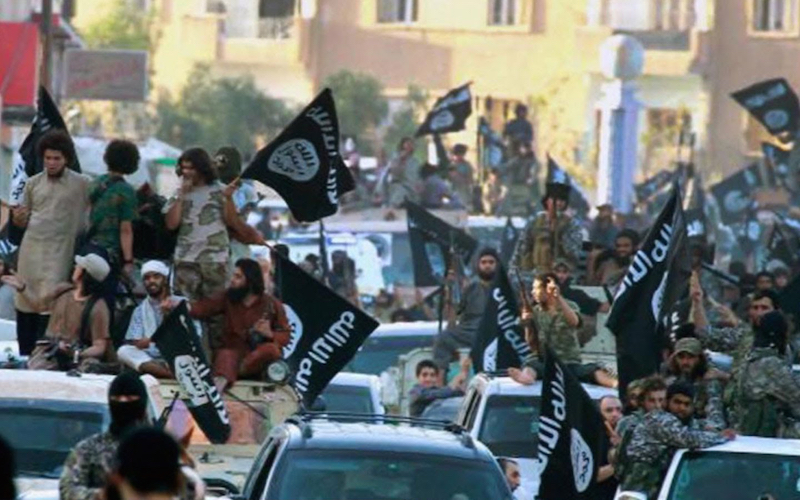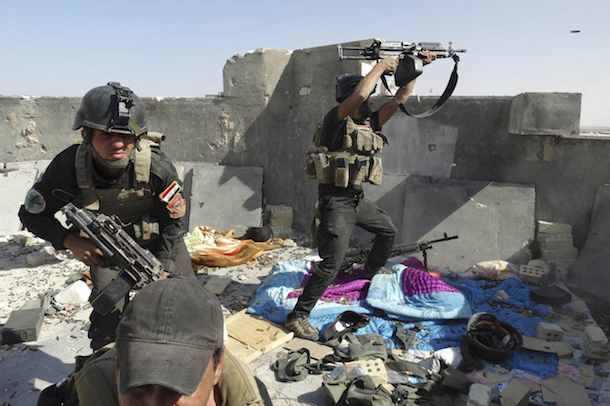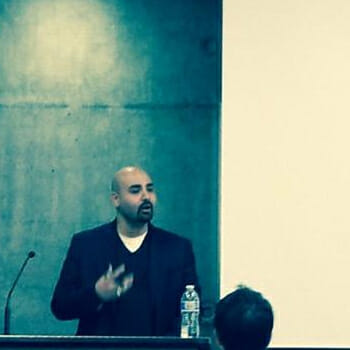
The Political Failure of the War with ISIS
The United States is losing the war with ISIS. It is also losing the de facto War on Terror. ISIS has taken city after city and now Palmyra has fallen. The root of this failure is an inability to conceive of the enemy as a political force. Some have argued that this failure is Obama’s doing, but in actuality the War on Terror was doomed from the start.
In 2001, when President George W. Bush declared a “War on Terror” he and his administration cemented a flawed conceptual framework. President Obama’s failing is that he has perpetuated the same framework that guides and informs US strategy in the Middle East. Today we are seeing the results of the US’ ongoing folly. The fundamental problem is that the United States and its allies are fighting a completely different war than what ISIS, the Taliban, and other Muslim extremist groups are waging.
The “War on Terror” is fundamentally based on the principle of military struggle. The US sees the problem of insurgency and terrorism as an ongoing military campaign to be won through force of arms. Muslim extremist groups on the other hand are waging a political battle. Certainly, military struggle is part of their strategy as is apparent by their ready use of violence, coercion, and their belligerence. At their core however, is that they view their respective groups as political movements.
Both the Taliban and ISIS see themselves as Islamist groups of resistance or revolution. Their aims and methods are political. They engage in propaganda, foster recruitment practices, and orient themselves as the opponents of American imperialism. This positional stance capitalizes on the anti-American sentiment in the Middle East and makes them alluring to the politically alienated and disenfranchised throughout the region.
The United States on the other hand completely fails to address the political aspect of the conflict, focusing entirely on military strategy. To the US, groups like ISIS are nothing more than religious bandits—with dangerous tactics certainly, but no real political threat. This purview is reductive and constrained by an inability to think of these groups in a complex political manner—it is unthinkable that groups like ISIS have enduring political ideologies and sound strategies. It is unthinkable that a brutal and cruel group like ISIS emerged as an insurgent revolutionary movement and is now a state formation. “Revolutions,” “resistance,” and “states” hold certain cherished meanings in our minds and “those” people are incapable of it.
This conceptual blindness has severe consequences. Firstly, it leads to a failure to recognize that the very tool used to combat terrorist groups—military aggression—fans the flames of their growth.
The United States declared its War on Terror over a decade ago and rather than see a decrease in terrorist activity, its virulence has grown and evolved. The Taliban remain firmly entrenched in Southern Afghanistan in a long term insurgency. The Pakistani Taliban threaten stability in Pakistan while enabling and fostering the insurgency in Afghanistan. The Iraq War was declared over and yet ISIS continues to confound the US and its allies. Syria is torn between the tyrannical forces of Assad on one hand and ISIS on the other who has seized nearly half the country.
Then there is the Houthis in Yemen, Boko Haram in West African and dozens of more groups. Each and every one of these growing threats are seen as aberrations or mere military setbacks. In actuality they are political defeats. They are enabled by a very specific socio-political climate and each have their own respective political strategies.

Take ISIS, for example, which was born from the collapse of the Iraqi security apparatus vis-à-vis US invasion and it was fostered by the alienation of the Sunni tribes by the Shia elite in Baghdad. ISIS addresses these very problems as a mandate for a state that stands in opposition to American imperialism. It strategizes to build a state that never again will be vulnerable to occupation nor threats that erode the fabric of social and national security. It espouses an expansionist political strategy to redress perceived colonial wrongs. While we drop bombs from the sky, ISIS works through on the ground realities and as a result draws increasing number of recruits while expanding its territorial boundaries.
If there is one lesson that we can learn from the past decade it is that a military strategy alone is not working. Bombing countries is not the solution to dealing with extremist and insurgent groups. The US needs to recognize that the political genealogy of these groups lie in the anti-imperial ideology of 19th and 20th century reformers like Sayyid Jamal Ad-din Al Afghani and Sayyid Qutb. From these roots, Muslim extremist groups see themselves as movements of resistance and revolution against imperial forces. Our bombs and missiles aimed at destroying and degrading become the political catalyst that allows these groups to spread, splinter, and find new purchase in the Middle East.
Our view of ISIS and similar extremist groups stems from an orientalist way of thinking about the Middle East and insurgency, one that sees these groups as nothing more than backwards religious extremists that can be dealt with by force alone. It fails to see them as complex political actors with a dynamic political ideology that is fed by US military intervention and with specific strategic goals. We need to recognize these groups as more than mere bandits or aberrations, but as having political strategy and the capacity to enact those strategies.
The enemy is not a bunch of backwards thugs that will be cowed with a “shock and awe” tactic, but are born from a very specific political milieu. The US needs to recognize that neither Bush’s Global War on Terror, nor Obama’s “series of persistent and targeted efforts” (which is really a continuation of the same framework, but with more drones) are solutions to this problem.
What the United States needs more than ever is a political strategy to deal with ISIS and other groups like them. We need to think the unthinkable: that ISIS and groups like them are political actors who need to be dealt with politically in the same way that you would any other state.
It is time to change the very framework that guides US policy towards ISIS and to groups like them. The US needs to recognize the complex and dynamic nature of these groups, their political aims, and acknowledge that notions like revolution and resistance do not exclusively belong to neoliberalism. In other words, the US needs to think the unthinkable, that revolution has led to a brutal Islamist state and adopt an according strategy.
I am not suggesting that the United States abandon all military operations, but it is time for the United States to see beyond its policy of bombs and bullets.

